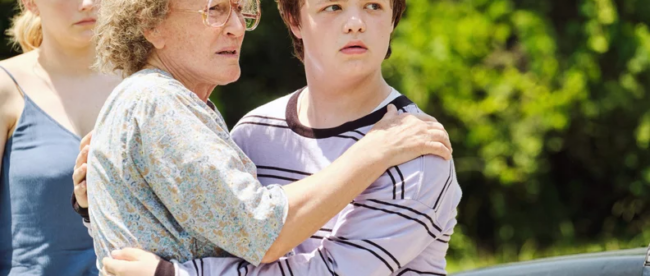Review: Hillbilly Elegy (2020) – A Rusty Reflection of the American Dream
By: Armaan Sharma & Anushree Samsi
Ron Howard’s Hillbilly Elegy arrived on Netflix with the weight of its best-selling memoir origins and the promise of an emotional deep dive into the struggles of America’s working class. Based on J.D. Vance’s autobiographical book, the film sets out to capture the grit, hardship, and generational cycles of poverty in Appalachian America. The result? A polished but uneven drama that swings between heart-wrenching performances and frustratingly shallow storytelling.
From Page to Screen: Lost in Adaptation
Vance’s memoir delves into the intricate web of family dynamics, cultural identity, and systemic challenges faced by the working class. The book provides a nuanced perspective on the socio-economic hurdles that define the Appalachian experience. In contrast, the film opts for a more straightforward, dramatized portrayal, focusing heavily on familial conflicts and personal turmoil. This shift in emphasis sacrifices the broader commentary on societal structures, rendering the movie a more insular family drama rather than a reflective social critique.
The Dichotomy of Personal Narrative and Political Trajectory
Perhaps the most glaring omission in Hillbilly Elegy is the way it sidesteps the political contradictions inherent in Vance’s story. The memoir—and, by extension, the film—paints a portrait of a boy who grows up surrounded by addiction, instability, and economic hardship, ultimately escaping through education and sheer perseverance. His personal story suggests an understanding of how systemic barriers—like access to healthcare and the effects of generational poverty—shape individual outcomes.
Yet, Vance’s later political stances often contradict the values his upbringing might suggest. He has aligned himself with policies that dismiss systemic reform in favor of a pull-yourself-up-by-the-bootstraps mentality. Issues like the opioid epidemic, which deeply affected his own family, are now framed through a lens of personal responsibility rather than public health. The film, however, chooses to completely ignore this evolution, presenting Vance’s story as an uncomplicated triumph rather than an ongoing conversation about privilege, accountability, and policy. This omission makes Hillbilly Elegy feel less like an honest reckoning and more like a neatly packaged, selective retelling of his past.
Polished, Yet Hollow
Howard directs Hillbilly Elegy with his usual gloss, but perhaps that’s the problem. The story is meant to be a raw and unfiltered look at rural poverty, yet the film often feels too clean, too neatly wrapped. It leans heavily on melodrama—cue swelling music, emotional outbursts, and flashbacks that feel more like a greatest-hits montage of suffering than an organic exploration of hardship.
The film also stumbles in its narrative structure. Jumping between J.D.’s childhood and his time as a Yale law student, the story struggles to find a rhythm. Rather than offering a nuanced view of social mobility, it sometimes feels like a simplistic “hard work and family support will fix everything” message. The complexities of systemic issues—education, healthcare, economic opportunity—are largely left out, which makes for a missed opportunity.
A-List Performances, Small-Town Realism
We would argue that there were bright spots, though: Glenn Close and Amy Adams. These two powerhouses transform themselves into their roles so convincingly that you’ll momentarily forget you’re watching an A-list Hollywood film. Close’s portrayal of Mamaw, the chain-smoking, tough-as-nails grandmother, is a scene-stealer, delivering every biting remark with the perfect mix of exhaustion and resilience. Adams, as J.D.’s mother Bev, gives a raw and volatile performance, embodying the highs and devastating lows of addiction.
But while the acting is top-tier, the characters themselves feel like they’re running on autopilot. The film rarely peels back the layers of their struggles beyond surface-level depictions of addiction, abuse, and financial instability. It tells us these cycles exist but doesn’t really explore them with the depth they deserve.
A Tale of Two Audiences
Who is this movie really for? Those who loved the book may appreciate seeing J.D.’s story come to life, but others might find it lacking the depth needed to truly resonate. If you’re looking for a film that critiques the social and economic forces that shape Appalachian life, this isn’t quite it. Instead, Hillbilly Elegy plays out more like an emotional family drama rather than a broader commentary on class in America.
Final Verdict
While Hillbilly Elegy delivers powerhouse performances, it ultimately falls short of being the deep, thought-provoking film it aspires to be. It’s compelling in moments but frustratingly surface-level in its approach. Worth watching for Close and Adams alone, but don’t expect it to leave a lasting impact.
Rating: 3/5 🌟🌟🌟
(Image credit: PS Magazine)

